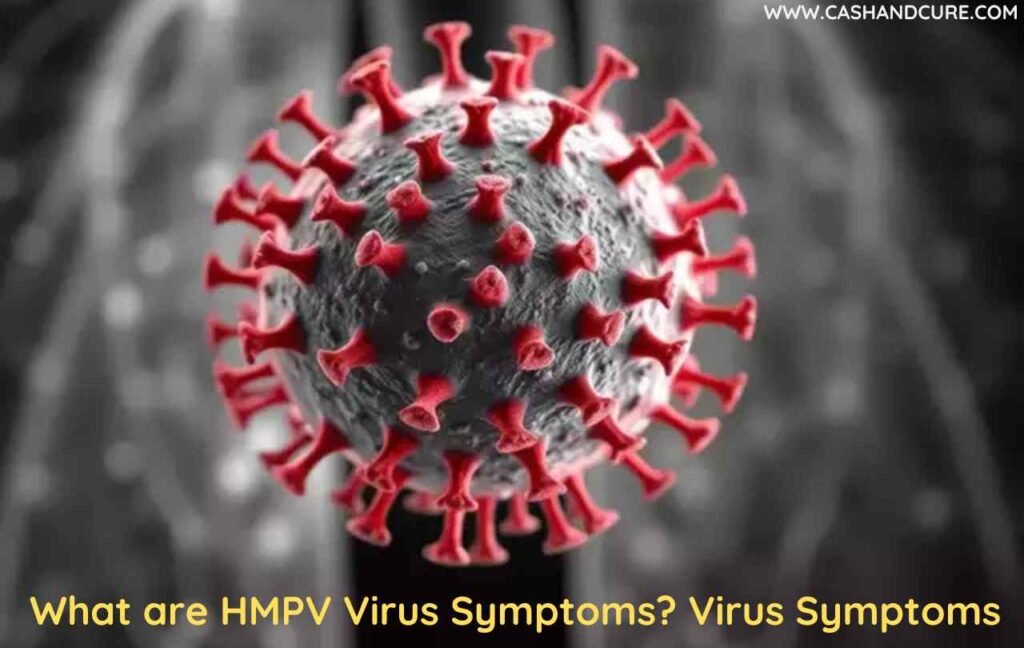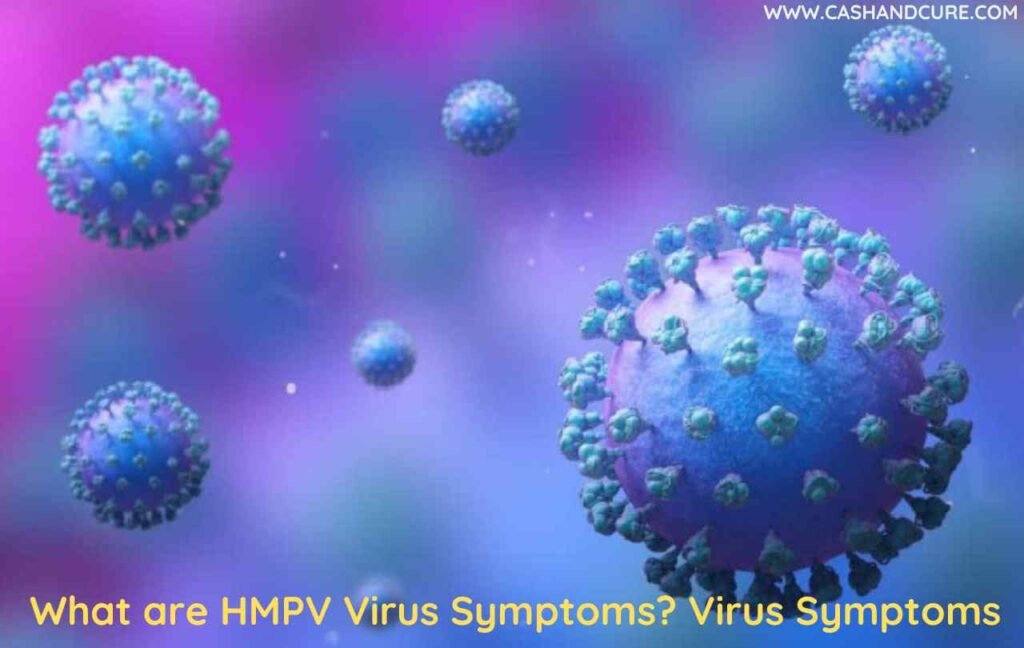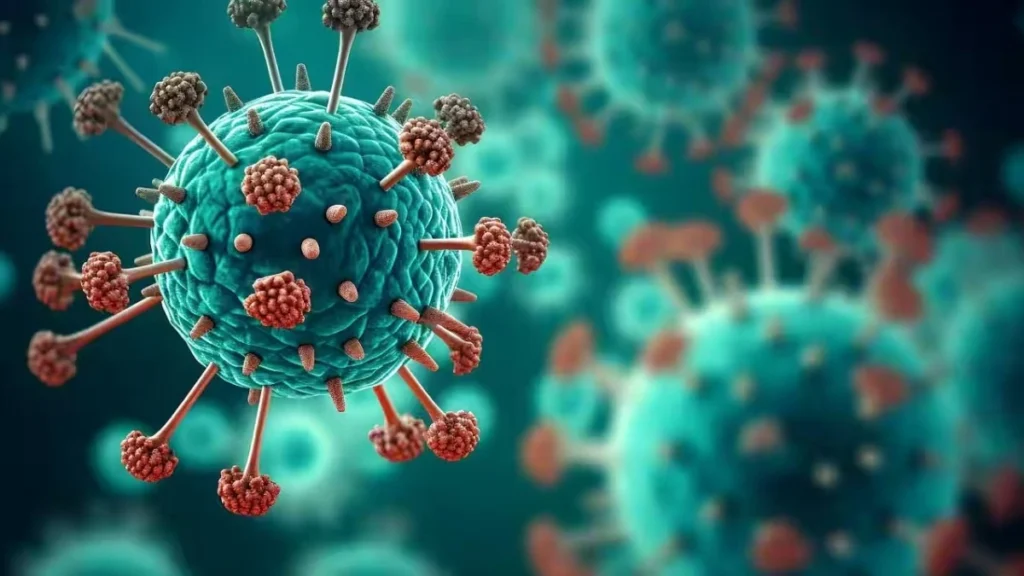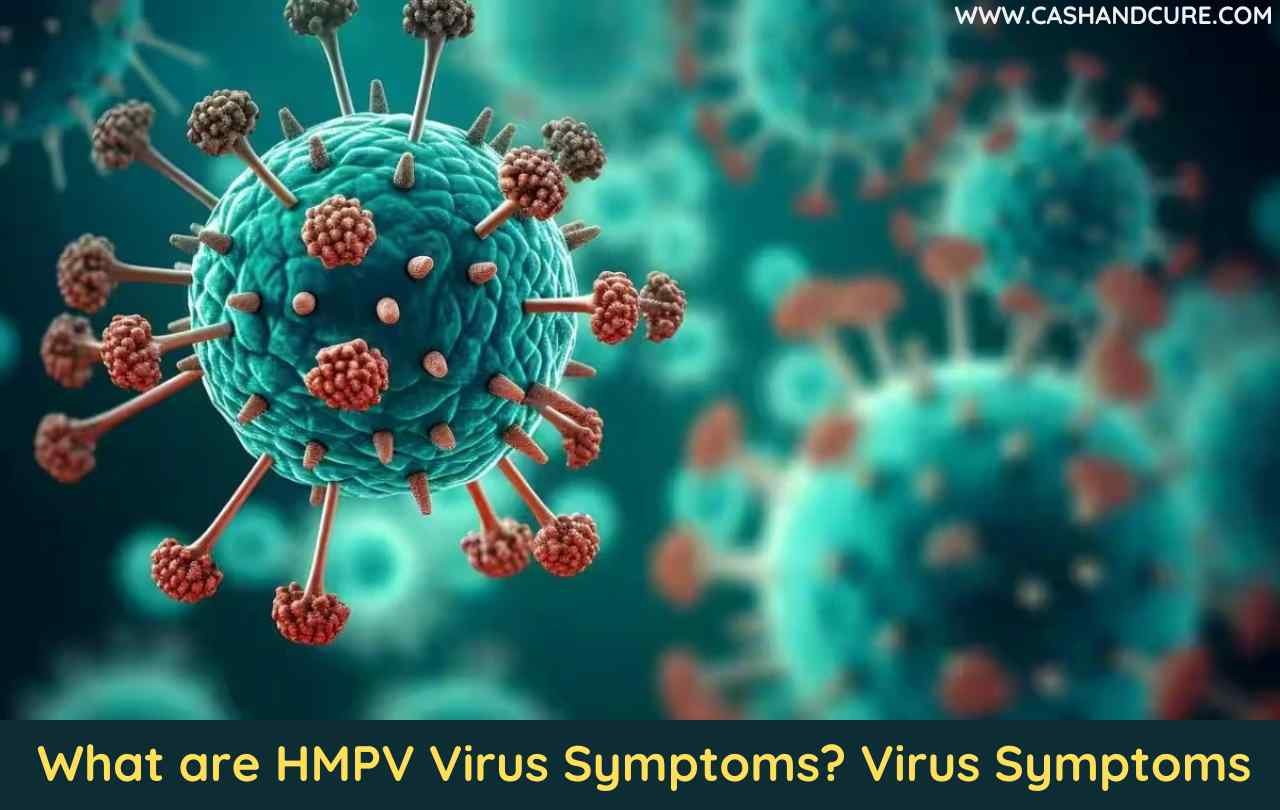What are HMPV Virus Symptoms? Human Metapneumovirus (HMPV) causes respiratory issues in people of all age groups, severely affecting young children, the elderly*, and individuals with weakened immune systems. This guide will provide detailed information about the symptoms of HMPV, its causes, and prevention strategies.
What is Human Metapneumovirus (HMPV)?
HMPV is a common virus that causes respiratory tract infections. First identified in 2001, it belongs to the Pneumoviridae family and shares similarities with respiratory syncytial virus (RSV). The virus spreads through:
- Direct contact with an infected person
- Respiratory droplets from coughing or sneezing
- Contact with contaminated surfaces
What are HMPV Virus Symptoms Virus Symptoms

Quick Fact:
HMPV is one of the leading causes of respiratory illnesses worldwide, especially during late winter and spring.
What Are HMPV Virus Symptoms?
HMPV symptoms vary in severity, depending on the individual’s age, immune system strength, and overall health. Common symptoms include:
1. Mild Symptoms
- Cough
- Runny or congested nose
- Sore throat
- Mild fever
2. Severe Symptoms (more common in high-risk groups):
- Difficulty breathing
- Wheezing
- High fever
- Chest pain
- Fatigue
3. Symptoms in High-Risk Groups
- Infants and young children: Ear infections, irritability, and feeding difficulties
- Elderly* individuals often experience worsened symptoms of pre-existing conditions like asthma or COPD.
- Immunocompromised individuals: Prolonged and severe respiratory symptoms

How is HMPV Diagnosed?
Doctors diagnose HMPV based on clinical symptoms and laboratory tests, such as:
- PCR Tests: Detect the genetic material of the virus
- Antigen Tests: Identify viral proteins in respiratory samples
- Chest X-rays: Used in severe cases to assess lung involvement
Treatment for HMPV
Currently, there is no specific antiviral treatment for HMPV. Management focuses on alleviating symptoms and supporting recovery:
Home Remedies:
- Rest and hydration
- Over-the-counter fever reducers (e.g., acetaminophen or ibuprofen)
- Using humidifiers to ease breathing
Hospital Care:
In severe cases, hospitalization may be required for:
- Oxygen therapy
- Mechanical ventilation for respiratory failure

Prevention of HMPV
Preventive measures can significantly reduce the risk of contracting and spreading HMPV:
- Hygiene Practices:
- Wash hands frequently with soap and water
- Use hand sanitizers when soap is unavailable
- Avoid Close Contact:
- Stay away from infected individuals
- Avoid touching your face, especially eyes, nose, and mouth
- Clean and Disinfect:
- Regularly clean frequently touched surfaces like doorknobs, phones, and toys
- Strengthen Immunity:
- Maintain a balanced diet rich in vitamins and minerals
- Get adequate sleep and exercise regularly
HMPV vs. Other Respiratory Viruses
HMPV shares symptoms with other respiratory illnesses, such as:
- Flu: Often includes body aches and extreme fatigue
- RSV: Similar symptoms but more severe in infants
- COVID-19: May consist of loss of taste and smell
FAQs About HMPV Virus Symptoms
No vaccine exists for HMPV, but research is ongoing to develop one.
Mild symptoms typically last 1-2 weeks, while severe cases may take longer to recover and could require medical intervention.
HMPV is highly contagious and spreads through respiratory droplets, close contact, and contaminated surfaces.
Seek medical attention if you or a loved one experiences severe symptoms like difficulty breathing high fever, or persistent chest pain.


Leave a Reply
You must be logged in to post a comment.